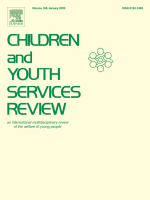Article, Refereed Journal
Children and Youth Services Review

Prior research examining the effectiveness of Court-Appointed Special Advocates (CASA) as an intervention for improving the outcomes of children in state custody has been hindered by selection bias, because children may be selected to receive CASA representation based on non-random characteristics. Selection bias poses a strong threat to internal validity, and researchers have struggled to isolate the effects of CASA services on child and case outcomes. The present study examines the extent of selection bias in the CASA assignment process over a 2-year period for a full population of foster children in regions served by CASA programs in Texas (N = 32,349), thereby increasing the capacity to control for selection characteristics and supporting causal inference in ongoing studies. This analysis of CASA and state child welfare administrative data examines differences in the baseline child-, family-, and case-level characteristics of children who were appointed CASA representation compared to children who received child welfare services without CASA representation. Mixed-effect logistic regression modeling identifies independent predictors of CASA appointment while controlling for a range of factors and accounting for data clustering in the selection process. Findings indicate that CASA cases in this population have indicators of greater complexity and severity compared to their non-CASA counterparts. By empirically identifying the factors that predict assignment to CASA at the population level, this study lays the foundation for an advanced quasi-experimental outcome evaluation to examine CASA's effectiveness at improving child and case outcomes while minimizing the influence of selection bias.
Research Topic
Family Policy

